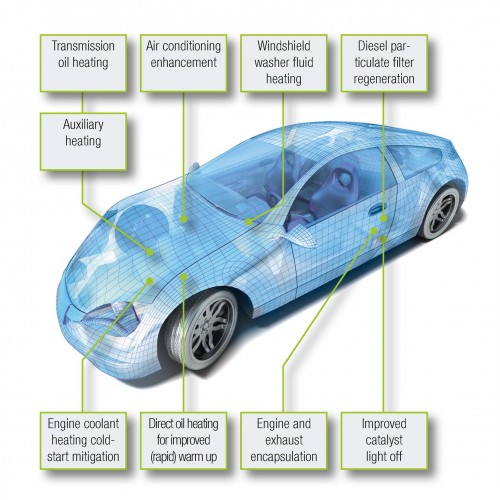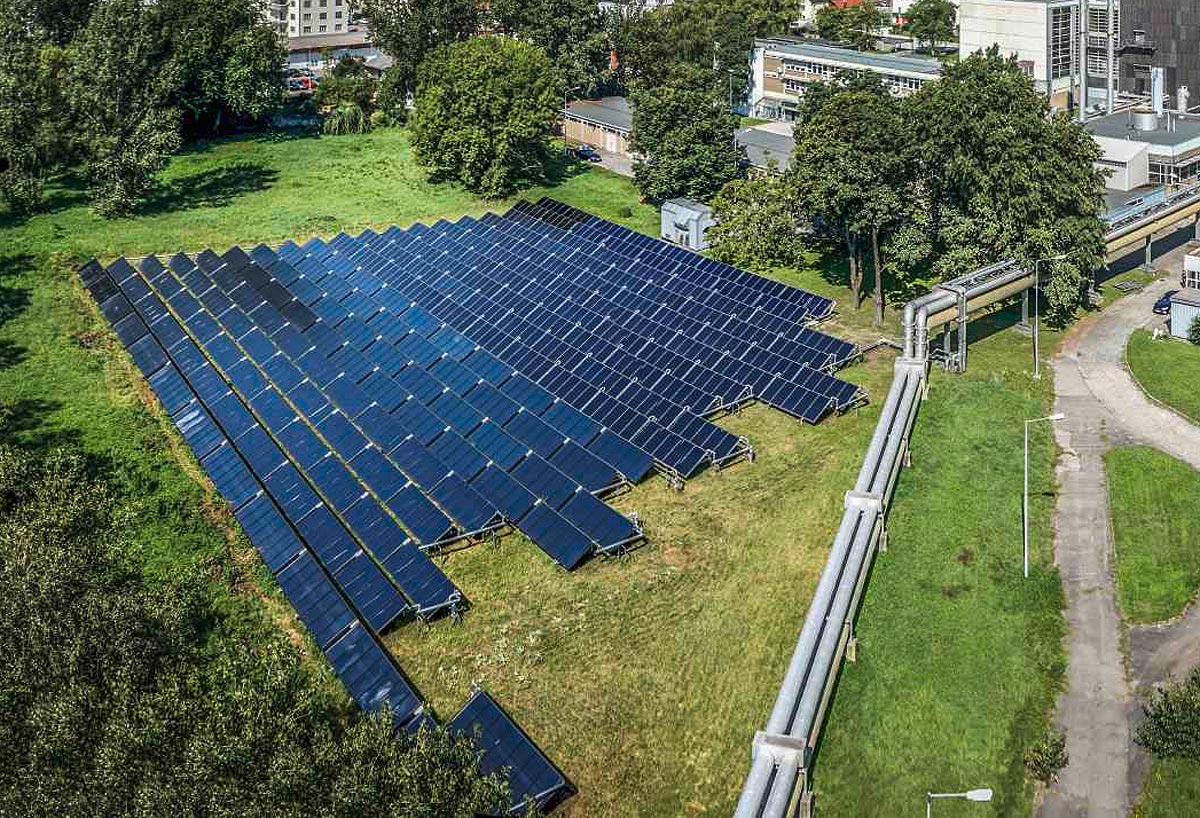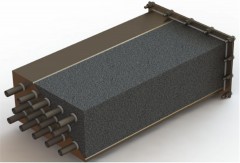Innovative technologies to store thermal energy over the short and long term are essential for energy security and for making energy conversion, energy distribution and end use more efficient. In the Tes4seT flagship project pioneering technologies for a new generation of compact thermal energy storage devices are being researched and strategies developed for integrating them in energy systems in buildings, industry and vehicle engineering. Managed by AEE INTEC, the project brings together nineteen research partners and industrial firms to lay the foundation for further industrial development.
In the building sector the focus is on seasonal solar thermal storage based on sorption technology. New sorption materials for low-temperature applications are being tested, and efficient thermal storage elements for innovative solar collectors developed. Conventional water storage facilities lose a great deal of heat to their surroundings; the new storage systems are intended to achieve better thermal performance and take up less space.
Utilizing waste heat is one important way to boost thermal efficiency in industrial processes. In the industrial sector the flagship project involves developing pioneering thermochemical storage technologies and new phase-change materials (PCM) for the medium temperature range. Key industrial sectors such as food, paper and cellulose, machinery and chemicals employ medium-range process temperatures (100 – 250°C). Steam accumulators are the conventional storage facilities for this temperature range; they operate at high pressure and at only moderate energy density (< 40 kWh/m3). They have the disadvantage that the temperature varies during charging and discharging, even though many industrial processes require heat at a defined temperature level. PCM storage devices could solve this problem, since heat is stored and released at more or less constant temperature and with high energy density (up to 60 kWh/m3).
In the transport sector new technologies to store energy are of special importance in the case of hybrid and electric vehicles and for rail (including underground rail). Batteries should be charged/discharged in a defined temperature range (around 35°C); if they are colder or hotter, the batteries‘ service life will be shortened. As less heat is available in the case of hybrid and electric vehicles than in vehicles with an internal-combustion engine, efficient heat flow management is needed.

As part of Tes4seT a thermal storage system is being developed to heat and cool a battery pack in electric vehicles, using sorption technology and testing new materials and components to condition the electric battery thermally. The entire system is to be deployed in a simulated car environment.
Another area of research involves heat storage for efficient energy systems in rail vehicles. The following topics are being investigated:
> Limiting heat dissipation from underground railways: the aim is to reduce the heat lost from heating, ventilation, air-conditioning and chilling facilities in underground railways by means of thermal energy storage systems.
> Improving conventional air-conditioning systems‘ performance at partial load: a cooling circuit with heat storage is being developed to make it possible to better regulate conventional air-conditioning systems.
> Improving air cycle cooling: conventional air-conditioning units can be made more efficient if the air entering the turbine is dry. New air-drying processes are being developed for this, e.g. employing new zeolites (molecular sieves).

Reinhard Aigner,
Liebherr-Transportation System GmbH & Co KG, Korneuburg


